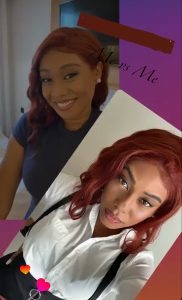Emotions and personality go hand in hand, or so I’ve been told. Understanding my emotional wiring has illuminated why I see, act, and react the way I do. No matter how well you think you know yourself, navigating both emotions and personality remains surprisingly complex.

Know Thyself
“Hi, I’m Janai, and I’m emotionally challenged.” I didn’t hesitate to introduce myself this way while my coworker browsed my bookstore haul. He challenged my self-diagnosis, so I explained that as an empath, I navigate everyone else’s feelings effortlessly—yet understanding my own requires logic, not intuition.
I guard myself fiercely against emotional manipulators and pride myself on emotional intelligence. To some, my approach may read as cold; to others, like I’ve abandoned my own heart. Determined to gain clarity, I bought a self-scoring emotional intelligence test and dove in without a clue what awaited me.
Are You Emotionally Literate?
- My result: My attempts to master emotions are praiseworthy but frequently ill-judged and unsympathetic.
- My interpretation: I work hard to control how I feel, yet I dismiss emotions I deem “unworthy” of acknowledgment.
- My reaction: I agree. I strive for emotional mastery, but I know I can come off as unsympathetic when I shut down feelings that don’t make logical sense.
Is Your Self-Image Positive or Negative?
- My result: I certainly accept who I am, but my aggressive assertiveness hints at poor self-image projected outward. I tolerate my flaws yet am intolerant of them in others.
- My interpretation: I own my strengths and weaknesses, but I expect everyone else to hide their flaws as carefully as I do.
- My reaction: I accept myself—and I’m working on the flaws I see. I draw the line at folks who refuse to grow. If someone won’t meet me halfway, I judge their stubbornness harshly.
Extrovert or Introvert?
- My result: My timidity (I had to look this word up) is a handicap. I should remind myself of my small victories and view others as lessons rather than threats.
- My interpretation: The test implies I must look down on weaker people to feel confident.
- My reaction: Woah. I won’t degrade anyone to boost my ego. As an introvert, I value meaningful exchanges over crowd-pleasing. My courage isn’t defined by social bravado but by staying true to myself when others doubt me.
I need to make a few things clear concerning this section. No excuses, just my truth!
I think just because a person is an introvert does not mean they aren’t courageous. It means they don’t have time to deal with other people’s bullshit, so they prefer to stay out of the way. However, the rest of the results give me mixed feelings. I do go out of my way to display how useful I am; this is a result of my being disregarded as a child and acknowledging the fears of others (those I will not specifically mention because I am not trying to hurt anyone’s feelings) that I wouldn’t make anything of myself. But!!! One thing I will never do is put someone else down to make myself feel better. I may go as low as excusing myself from a relationship because my ambitions cannot survive around someone with a lack of ambition or who is unsupportive. Still, I will never feel as though I am better than someone because of my accomplishments, blessings, or looks.
Are You Independent?
- My result: I’m fiercely independent and busy, wrapped up in my own world—yet still haunted by an “eternal victim” mindset over others’ opinions.
- My interpretation: I rely on myself so entirely that I barely notice others unless it’s about their approval or disapproval.
- My reaction: I agree I’m independent—perhaps more than most. I learned early that no one will back me like I back myself. As for others’ opinions, I neither seek nor fear them. My support system lives inside me.
Who’s in Charge: The Child or the Adult?
- My result: I balance a playful, spontaneous side with a confident, nurturing adult role.
- My interpretation: I’ve reconciled the child within me—the one craving love and security—with my adult self, who gives love and cares for others.
- My reaction: I love this. It captures how I stay joyful and curious while embracing responsibility. My inner child still wants to skip through puddles, and my adult self builds the bridges to keep us both safe.
Reflecting on these results has been eye-opening. I see where my logic outpaces my empathy, where my confidence teeters into projection, and where my independence shields me from both hurt and support. Moving forward, I’ll share the steps I’m taking to soften my edges without losing my backbone—and how you might apply similar practices in your own self-discovery. Stay tuned for actionable tips and real-world experiments in emotional mastery.
If you’d like to embark on your own self-discovery journey, here’s the test I used: Self-Scoring Emotional Intelligence by Mark Daniel Or you can grab it off the shelf at your local Barnes and Noble. I do recommend finding another test as well for comparison purposes.
Love life,
Janai


Leave a Reply